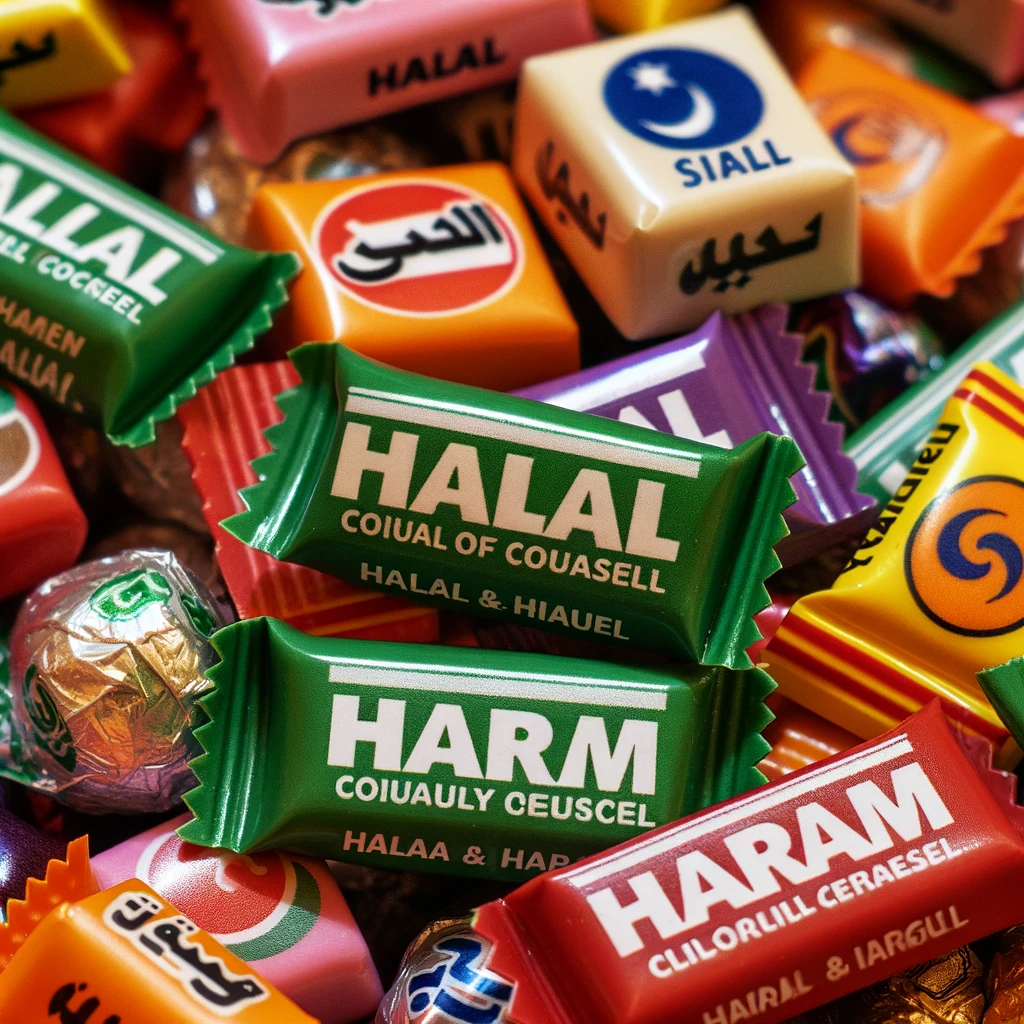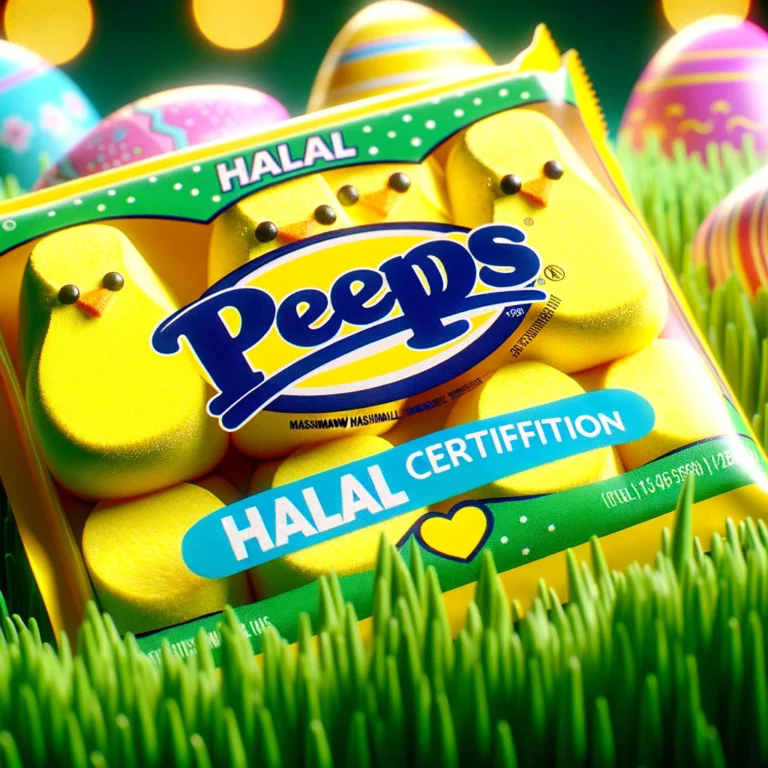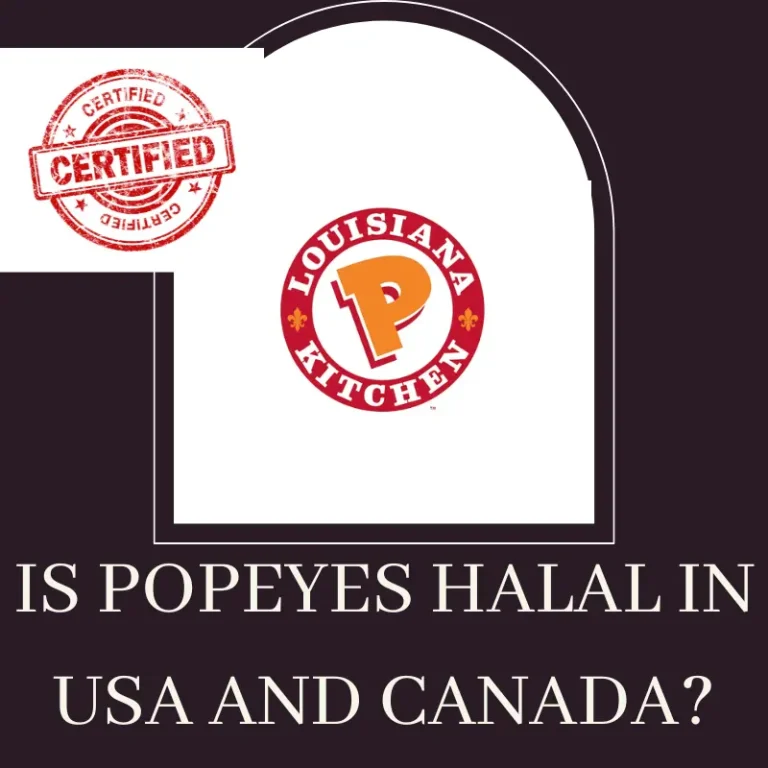Are Chews Halal?
Chews are a popular type of candy that have a firm, chewy texture. Common chew varieties include fruit chews, taffy chews, caramel chews, and gummy chews. With chews growing increasingly popular, especially among children, many Muslims wonder whether chews are considered halal.
Halal Guidelines for Food
For food to be considered halal, it must comply with Islamic dietary guidelines. Here are some key requirements:
- Cannot contain pork, blood, or alcohol
- Must come from a permissible animal slaughtered according to Islamic law
- Cannot contain gelatin or other ingredients derived from pigs or non-halal animals
- Should not contain non-halal animal byproducts
- Processing aids and solvents used must also be halal
Halal certification organizations assess products and production facilities to ensure they meet these guidelines. Certified products carry halal symbols on the packaging.
Are Chews Typically Halal?
The halal status of chews depends on their ingredients and manufacturing process:
Fruit chews – Usually halal. Mainly contain sugar, corn syrup, fruit juices/purees.
Taffy chews – Often halal if no non-halal additives. Primary ingredients are sugar and vegetable oil.
Caramel chews – Typically halal depending on flavors. Mainly contain sugar and dairy.
Gummy chews – May or may not be halal. Depends whether gelatin source is halal beef or non-halal pork.
So some chew varieties are generally recognized as halal, while others require closer inspection of ingredients.
Halal Certification
The most reliable way to verify if a product is halal is to look for halal certification symbols from accredited halal agencies. This includes:
- IHI Alliance Halal Certification – USA-based, internationally-recognized
- Islamic Food and Nutrition Council of America (IFANCA) – Respect halal certifier in North America
- The Islamic Society of the Washington Area
- Islamic Services of America
Checking Ingredients
When no halal symbol is present, you can check the ingredients list for any questionable ingredients that may render the chews non-halal:
Gelatin – Mainly derived from pig skin/bones. Halal if from halal beef sources.
Pepsin – Enzyme often obtained from pigs. Alternatives exist.
Glycerin/Glycerol – May come from animal fat which requires halal verification.
Natural flavors – Can contain alcohol or non-halal extracts. Requires investigation.
Artificial colors – Certain colorants may contain alcohol.
So if any of these suspicious ingredients are present and no halal certification is provided, it is best to avoid those chews to stay compliant with halal guidelines.
Contacting the Manufacturer
If ingredients seem questionable or information is lacking on halal status, consider directly contacting the candy manufacturer.
Information to request:
- Source of gelatin or other animal-derived ingredients
- Halal certification details
- Whether alcohol or pork derivatives are used
Reputable companies should provide clear details on ingredients sources and halal compliance. Lack of transparency may be a red flag.
Sample Manufacturer Inquiry Email
Subject line: Halal status inquiry
Dear [manufacturer],
I am interested in purchasing your [product name] chews but need to confirm if they meet halal standards.
Could you please advise on the following:
- Are your chews halal certified? If yes, which certifying body.
- If not certified, please confirm halal status of gelatin, glycerin or other animal derived ingredients.
- Also verify no alcohol, pork, or pork by-products are used.
Appreciate you taking the time to check on this and provide clarification.
Thank you,
This type of direct inquiry should provide definitive information on if a particular chewy candy meets Islamic dietary compliance.
Chewing Gum Considerations
Most chewing gums also require scrutiny of their ingredients and manufacturing process to be deemed halal:
- Glycerol – Needs halal verification
- Gelatin – Pork or beef source must be confirmed
- Flavors – Assess alcohol and extract sources
- Sweeteners – Some types may not be halal
So the same halal investigation principles discussed earlier apply to determining if chewing gum varieties are halal.
Children’s Chewy Vitamins
Chewy vitamins designed for children often contain gelatin and other questionable ingredients. Thus confirmation of halal status via certification or contacting manufacturers is necessary.
Some notable exceptions include the halal certified children’s chewable vitamins from companies like:
- Jamieson Kids
- Island Sun Organics
- Rite Aid Pharmacy Cherry Flavored Children’s Multivitamin
So viable halal alternatives for supplemental nutrition do exist.
Homemade Halal Chews
For those wanting full control and transparency over ingredients, homemade gummy candies, taffy chews, and jelly candies are another option.
Here is an example halal ingredients list and preparation method:
Halal Homemade Gummy Bears
Ingredients:
- 1⁄2 cup juice – orange, pineapple, lemon, etc.
- 1 package unflavored gelatin
- 1⁄4 cup honey or maple syrup
- 1⁄4 cup sugar or sweetener alternative
Preparation Method:
- Mix juice, sweetener, and gelatin powder in a sauce pan
- Heat on medium, stirring frequently for 5 minutes
- Remove from heat and pour into gummy bear molds
- Refrigerate 1 hour until firm
- Remove from molds to enjoy chewy halal gummy bears
So homemade chewy candies allow Muslims to enjoy yummy gummy and fruit snacks that align with halal principles.
Final Thoughts
Determining if mass-produced chews are halal requires carefully inspecting ingredients, contacting manufacturers for transparency, and confirming halal compliance certifications. For assured adherence to Islamic guidelines, Muslims can also make tasty chewy treats at home using permissible ingredients.
Are Mainstream Chews Halal-Certified?

As we explored above, some major candy brands producing gummies, taffy, caramels, and other chews do obtain halal certification from accredited agencies. This includes:
However, consumers must be aware that not all products made by these brands may be certified or halal. Different manufacturing facilities making the same candy may vary in meeting halal standards.
For example, Mars Wrigley makes both halal and non-halal varieties of its famous chewing gums and gummies. ISOWA certifies certain Skittles products made in different Mars factories, but not all.
So checking each individual candy product remains necessary, rather than assuming all offerings from a company are halal based on some certified products.
How Are Major Chew Brands Responding to Halal Demand?
As Muslim populations grow in the West and halal commerce expands, candy giants are taking steps to have more offerings meet halal requirements:
- Nestle – Obtaining halal certification for its production facilities including Kit Kat chocolates and gummy candies
- Mondelez – Has halal-compliant manufacturing of brands like Sour Patch Kids gummys and chewing gum in Indonesia, India, and Malaysia
- Ferrara Candy – Maker of brands like Laffy Taffy, Now & Later acheiving halal compliance through ingredients sourcing and production practices
- Haribo – Expanding halal certification with the Islamic Services of America (ISA) across its gummy production facilities
So the major players realize the large addressable Muslim market seeking halal-approved candies. They appear to be investing in requisite supply chain adjustments.
What About Smaller & Niche Candy Companies?
Lesser known players making gourmet, organic, or specialty chewy candies are also joining larger brands in pursuing halal certification. These include:
- YumEarth – All organic gummy vitamins and snacks are halal per Islamic guidelines
- Surf Sweets – Vegan and allergy-friendly gummies certified by IFANCA
- Albane Candy – Boutique chewy candies explicitly manufactured to be halal
Certification allows them to differentiate in a crowded candy market dominated by big confectionary conglomerates. So even young startups aim to comply with halal standards to open up that large target demographic.
Factors Driving Halal Candy Demand
Multiple socioeconomic trends are causing demand and production of halal food and beverages, including candy, to swell globally:
Growing Muslim Populations
- Islam currently has about 1.6 billion followers worldwide per 2010 statistics
- Projections estimate the Muslim population could grow by 70% in next several decades
- Majority living in Asia Pacific and Middle East with growing minority populations in Americas and Europe
So an expanding Islamic follower base with discretionary income is demanding more compliant consumable options.
Increasing Health Consciousness
- Halal products often perceived as more natural, ethical, and pure
- Alignment with vegan, vegetarian, non-GMO, and clean-label movements
- Emphasis on quality ingredients benefiting general consumer shift towards wellness and transparency
As health considerations influence buying decisions, halal provides assurance.
Rise of Ethical and Values-Based Consumerism
- Consumers seek brands aligning with moral beliefs
- Halal signifies social responsibility and just treatment of animals to many
- supports religious freedoms and inclusive products resonating across backgrounds
Younger demographics especially drawn to companies reflecting their principles.
Technology Enabling Authentication & Tracking
- Blockchain, barcode tracking, genetic testing improving supply chain validation
- Allows comprehensive halal verification for ingredients origins and touch points
- Provides authentication and quality assurances to conscience consumers
Technology builds consumer trust in legitimate halal claims.
So both the growing Muslim demographic and broader interest in ethical products makes halal certification strategically important for food companies. Candy manufacturers realizing these opportunities to differentiate while also appealing to wider health and values-based buyers.
What Does Halal Certification Entail?
Halal production involves more than just omitting certain ingredients. It requires comprehensive process oversight from sourcing to packaging. Key aspects include:
Raw Ingredients
- All ingredients along with processing aids must be from halal sources
Supplier Audits
- Suppliers, including primary producers, pressured to prove halal compliance
- Transparency in subcontractor selection and ingredient traceability
Segregated Production
- Dedicated halal manufacturing lines avoiding cross-contamination
- Utensils, equipment, storage halal-only
Personnel & Process Controls
- Muslim staff involved in oversight, evaluation, and decision-making
- Staff training on halal policies
- Process adjustments to meet standards
Prevention of Contaminants
- Proper sanitation preventing introduction of impermissible substances
- Packaging safeguards
Documentation & Record Keeping
- Comprehensive paperwork trail on all materials and procedures
- Lab testing results
Continuous Monitoring
- Periodic third-party audits of facilities, processes, and technology
- Random product sampling
Earning and maintaining certification means strict adherence at all stages.
Why Do Candy Companies Bother?
Despite the burden of achieving halal compliant candy production, manufacturers realize the profit potential:
- Massive New Consumer Segment – Tapping into the exponentially rising Muslim market
- Market Expansion – Growing interest beyond just Muslim communities with alignment to broader ethical and natural foods movement
- Price Premiums – Consumers willingness to pay more for halal assurance and quality
- Improved Reputation – Positive public image and brand differentiation by meeting religious needs
So the lucrative halal segment provides enough incentive for candy makers to take on the investment to reformulate products and overhaul production infrastructure.
How Are Chewy Candies Made Halal?
For typical candy production to achieve halal standards involves addressing three key areas:
Gelatin Sourcing
The animal byproduct gelatin gives gummies, marshmallows, and other chewy candies their texture. To comply with halal guidelines requires:
- Obtaining gelatin from cattle or poultry slaughtered according to Islamic regulations
- Ensuring complete traceability and segregation through the supply chain
- No cross-contact with questionable sources
Alcohol Removal
Some candy ingredients contain alcohol used as solvents which must be substituted:
- Replace grain alcohol and ethanol with halal vinegar or vegetable glycerin
- Arab countries mandate under 0.1% alcohol while others allow up to 1%
Porcine Removal
No pork or pork byproducts can be present:
- Switch porcine gelatin and pepsin enzyme to halal beef or vegetable alternatives
- Confirm no lard or fat derived from swine used
So establishing verified halal supply sources combined with dedicated production line processes allows achieving compliant chewy candies.
Homemade Halal Candy Options
For those desiring complete control and transparency with their chewy candy ingredients, DIY homemade versions are an alternative.
Advantages of homemade halal candy:
Ingredient Control
- Select your own gelatin, sweeteners, flavors to meet preferences
- Use permissible food colorings
Adaptability
- Substitute animal gelatin with plant-derived agar or pectin
- Accommodate food allergies
Self-verification
- No need to investigate manufacturing practices
- Can adjust recipes until satisfying halal
While homemade halal gummy bears, fruit chews, taffy, and caramels require some trial and error, ultimately you control the outcome.
Tips for DIY Halal Candy
If attempting homemade halal candy, here are some useful pointers:
- Use gelatin sheets instead of powdered gelatin which can clump
- Let hot sugar candy mixtures cook sufficiently to reach firm ball stage
- Allow halal gummy candies enough chilling time to properly set
- Consider non-gelatin options like arrowroot, tapioca starch, psyllium husk as base
- Check oven instead of stovetop for some recipes requiring even heat distribution
- Use a candy thermometer to identify target temperatures
- Avoid burnt sugar or overcooking leading to unpleasant flavors
Take necessary precautions and make adjustments as needed. Refer to online tutorials and recipes for details.
Children’s Halal Chewing Gum
Many major chewing gum companies now produce certified halal varieties, with some specifically targeting younger audiences.
Examples of popular children’s gums with halal status include:
- Bazooka Candy Brands – Select flavors like original Bazooka certified by IFANCA
- Lotte Confectionery – Certain Mild Mint and Watermelon gum verified halal
- Perfetti Van Melle – Fruit and standard Chupa Chups gum halal per JAKIM standards
So Muslim parents can find kid-friendly chewing gum options meeting their religious needs.
Be An Informed Consumer
As with other candies, not all gum products from the same manufacturer may be halal. Different facilities and countries of origin play a factor.
For instance, while select Mars Wrigley and Cadbury gums have Islamic Society of North America (ISNA) certification, consumers need to check labels to identify compliant alternatives.
The same halal investigation principles explored earlier apply to gum. Seeking out certification, contacting makers to confirm sources, and studying ingredients help ensure adherence to Muslim diet restrictions.
Concluding Thoughts
In closing, verifying if the growing variety of gummy candies, chewy caramels, fruit snacks, and taffy chews meet halal guidelines relies on a diligent approach. Muslims should look for certification from accredited agencies, inquire directly with manufacturers, and inspect ingredients labels.
As demand expands beyond Muslim communities into broader consumers concerned with ingredients purity and ethics, more candy brands seem motivated to invest in halal compliance. But consumers must still research and ask questions to feel comfortable products align with Islamic principles.
For ultimate control, homemade candy recipes allow fully dictating permissible inputs but require trial and error to perfect chewy textures. Fortunately, technology and improved supply chain accountability also offer more validation of halal readiness even for mass producers.
So while requiring extra effort compared to typically checking for common allergens, ensuring candy choices meet halal standards provides observant Muslims important assurance. There are an increasing variety of both major and niche chewy candy options pursuant of appealing to this valuable consumer segment.







